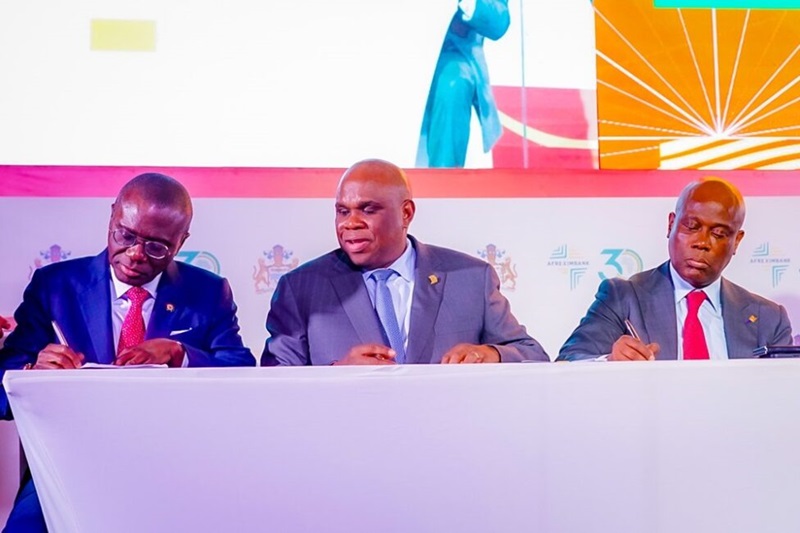Lagos state in southwestern Nigeria has secured a partnership with African Export-Import Bank or Afrexim and Access Bank for an investment of $1.35 billion for infrastructure projects.
Babajide Sanwo-Olu, the Governor of Lagos, confirmed that the state got a $1.35 billion deal from Afrexim and Access. Under investments for infrastructure projects, a bridge project and a creek project would be developed. The investment would also be used to expand the light rail project in Lagos, the largest city in sub-Saharan Africa.
Sanwo-Olu wrote on social media platform X, previously Twitter, “This investment will power our long-term infrastructure projects, demonstrating confidence from international and local partners in our growing economy.”
The governor of Lagos signed the partnership deal with the two banks on Tuesday at the second Africaribbean Trade and Investment Forum 2023 in Guyana.
What can Nigerians expect?
Nigerians can expect infrastructure expansion across Lagos. Lagos will expand its light rail project. A $2.5 billion bridge will also be built, which is expected to relieve severe congestion in the mega-city. The Fourth Mainland Bridge, a 38 km long bridge project by the Lagos State Government, will also be built under a public-private partnership.
Lagos has also planned to build an international airport at its Lekki-Epe corridor. The Lekki Airport project needs funding to be completed. The investments from Afrexim and Access Bank can help the state to complete this Lekki Airport project.
Keep Reading
The governor has said that the investment will help Lagos to execute “key projects, including the Fourth Mainland Bridge, Omu Creek Project, and the second Phase of the LRMT Blue Line from Mile 2 to Okokomaiko.”
Last month, Nigeria also announced plans to invest $5 billion in tech startups for the next four years. Bosun Tijani, the Nigerian minister of Communications, Innovation and Digital Economy, said that the plan would help Nigerian tech startups raise $5 billion yearly through funding by the year 2027. This year, Nigeria also launched a $618 million tech fund for young investors.

